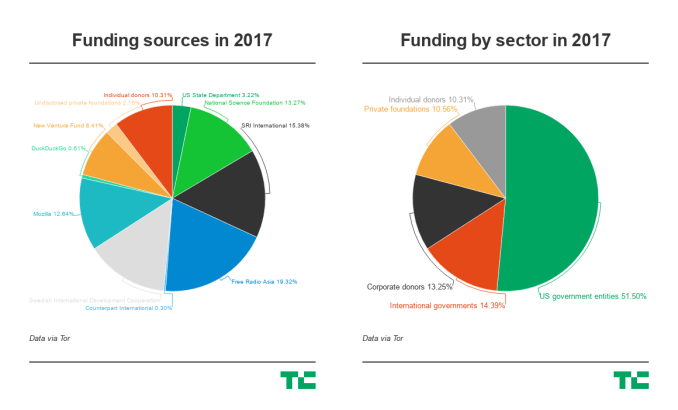It’s another week, and another bevy of hits on Chinese tech by the U.S. government. Let’s get up to speed, plus a request for startup lawyer recommendations.
TechCrunch is experimenting with new content forms. This is a rough draft of something new — provide your feedback directly to the author (Danny at danny@techcrunch.com) if you like or hate something here.
Venture capital’s leading advocate NVCA pushes for narrower restrictions on foreign investment
Let’s start with the most exciting subject in the world: the federal rulemaking process.
Last year, Congress approved sweeping reforms of CFIUS, the Committee on Foreign Investment in the United States, providing it with new powers including the ability to review deals made by foreign investors for minority investments (aka the kinds of equity rounds typically received by startups). That reform has put a crimp on SoftBank’s Vision Fund, which has been trying to get around the rules, and has also led to a massive decline in the amount of Chinese venture capital flowing into the Valley.
As the implementation of that reform meanders its way through the federal rulemaking process, one huge challenge is defining what the term “emerging technologies” means. Since the purview of CFIUS will extend to any technology defined under that term, its definition is critically important, but there is just one problem: no one knows what the hell that phrase even is.
So yesterday, the National Venture Capital Association, the leading advocacy org for the asset class, submitted its stance on the debate. In a filing with the Bureau of Industry and Security, the NVCA argues for a relatively narrow interpretation of emerging technologies.
The organization is specifically concerned about controls on technologies like AI/ML and gene editing through CRISPR, because these “horizontal technologies” are very under-defined and thus restrictions on investment could lead to tough challenges for many startups. For instance, startups that fall under these categories could be prevented from taking foreign investment, or sharing information with other startups. In short, it could kill American leadership in these industries.
It’s an important point, but it is also part of a wider challenge — for startups and the government — that no one knows what “AI” means any more than they know what “emerging technologies” mean. Every startup might have (or claims to have!) AI, and that could mean that highly restrictive rules from the Bureau could apply pretty much to everyone, undermining the original intent of reform legislation.
This is a process not worth paying attention to, except that if it were to go stupidly wrong (and this is DC after all), we might suddenly find that the thousands of AI startups in the Valley suddenly become “definitely not AI” startups posthaste.
Don’t expect to ride Chinese subway cars in America anytime soon (except if you live in Boston)
America’s subway cars are widely dilapidated, as riders in systems in Boston, New York, DC, and SF can attest. Replacing those subway cars is a challenge, particularly since no American company manufactures them. Among the largest manufacturers is the China Railway Rolling Stock Corp., which has won deals to replace some of Boston’s aging subway cars.
Now, there is a renewed nationwide push to demand tougher cybersecurity standards on railcars as a way to prevent Chinese companies from receiving these contracts. As the Washington Post noted this week, DC’s Metro officials have rewritten its contract specifications, adding terms to require that all hardware and software go through cybersecurity verification from third-parties.
Further, Congress itself is getting involved in the matter. Per the article:
Both the U.S. Senate and House have sought to block further Chinese penetration of the transit vehicle market. Each chamber has inserted language in annual transportation appropriations bills to impose a one-year ban on new purchases of mass transit rail cars or buses from Chinese-owned companies if the procurement uses federal funding. The ban is not yet law, as final action has been put off until this year.
Cybersecurity is of course a legitimate concern, but so is lowering the cost of subway car replacements. By removing Chinese bidders from this market, Congress is effectively raising the price of subway car replacements for every city in the nation (and do you think they will pay for that increase?)
Huawei export license not renewed
Huawei has had a bullseye on its back for much of the last two years, and now it faces another restrictions.
The company hosts a research and development center in Silicon Valley quaintly called Futurewei, where it designs next-generation telecommunications tech. As reported in the Wall Street Journal, the unit has recently seen its export license for some of its technologies pulled by the Commerce Department. That move means that Futurewei won’t legally be allowed to transfer its know-how back to Huawei in China. What becomes of the lab, which the Journal reports has a budget of $16 million, is anyone’s guess.
These little policy actions are starting to add up though. While the administration at one point pulled the entire license for ZTE and nearly killed it, it seems to have now fallen into a pattern of just creating enough frictions in the market to make operating a Chinese company in the U.S. annoying and unprofitable. Which, with some deep irony, is exactly how the Chinese have blocked American companies for years.
Okay so what?
With the massive decline of Chinese investment in Silicon Valley and further export restrictions, it is clear that the Trump administration wants to sever any link between the two countries in the technology industry. While it is still early, it is clear that they have been pretty clearly successful, no doubt helped by the retrenchment of the Chinese economy as growth has slowed on the mainland .
For founders in the U.S., the complications and tough choices have actually declined substantially. A certain universe of LPs and VCs have left the market, and the Chinese market is pretty clearly marked off-limits and is probably best ignored for the time being. The toughest questions might be around partnership deals with the likes of Tencent, but those have not been as heavily targeted by authorities so far. So the China story may well disappear in the coming months as the two countries head in their own directions.
Share your feedback on your startup’s attorney
My colleague Eric Eldon and I are reaching out to startup founders and execs about their experiences with their attorneys. Our goal is to identify the leading lights of the industry and help spark discussions around best practices. If you have an attorney you thought did a fantastic job for your startup, let us know using this short Google Forms survey and also spread the word. We will share the results and more in the coming weeks.
What’s next & obsessions
I’m continuing to explore this theme/thesis of (societal) resilience tech that I discussed yesterday. Lots of you gave feedback on the idea and further avenues to explore.
I want to specifically thank a reader named Beau, who sent me multiple paragraphs, a dozen book recommendations, and a whole list of articles on the subject to get me up to speed. I super appreciate the thoughtfulness, and look forward to sharing more of that list in the coming days.
I love hearing from readers, so if you have thoughts, opinions, articles or books, share them with me: danny@techcrunch.com.
Reading docket
What I’m reading (or at least, trying to read)
- The Planet Remade by Oliver Morton and Networks of New York by Ingrid Burrington.




